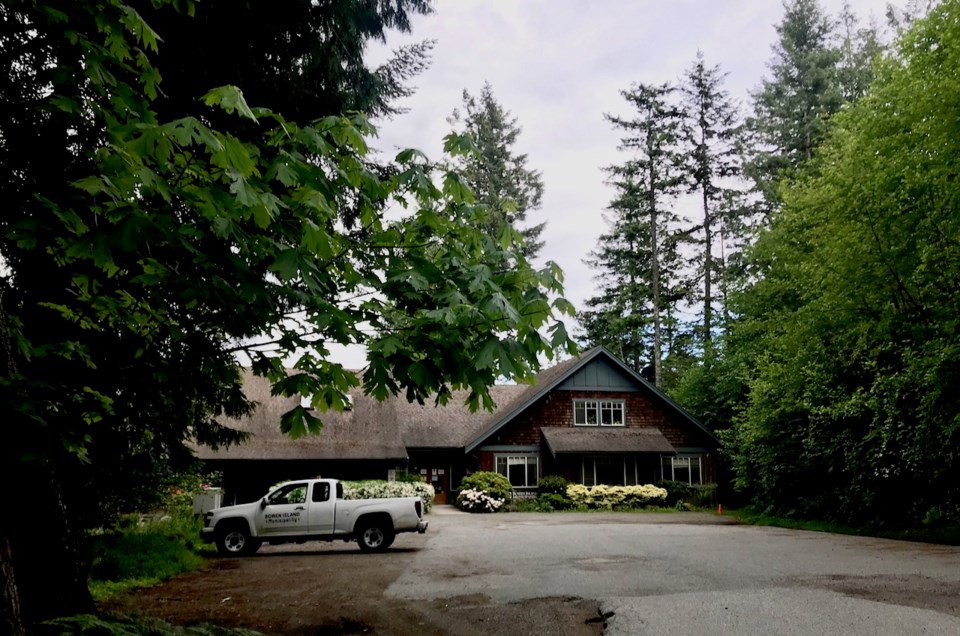It was a double-feature kind of week for council. A special council meeting July 8 and another July 13 ahead of the coming August break (there’s still one more council meeting in July) saw plenty of Zoom discussions and decisions. The following are briefs from the two Bowen Island Municipal council meetings:
Short term rental bylaws: The numerous Air BnBs across the island, until now mostly illegal, have been legalized.
Amendments to the Land Use Bylaw legalized short-term rental across the island (in residential zones) but with limitations in number of days a year rented out (120) and occupancy (two people per room). Amendments to business licensing set the STR fee at $300 and require a designated person to respond to any complaints within two hours. Amendments to the bylaw notice enforcement bylaw set penalties at $150 for a first offence and $500 for every one thereafter.
Council also voted to review the regulations in a year’s time.
No councillors voiced complete satisfaction with the bylaws.
“We’re not going to get it perfect in the first year,” said Mayor Gary Ander. “We’ve got to get this thing going and see what happens.”
Coun. Maureen Nicholson noted that she’d prefer fewer allowed days for rental, a higher business licence fee, a requirement that the designated person to respond to concerns be on-island and more confidence in the capacity for enforcement, but was willing to accept the regulations as presented as compromises. Councillors David Hocking, Rob Wynen and Sue Ellen Fast voiced support for Nicholson’s sentiments.
Nicholson also wanted the public to receive more information about the potential revenue for affordable housing from the Municipal & Regional District Tax (MRDT), which she described as a “modest contribution.” Back in April, BIM had been set to ask the province to impose a three per cent tax on short term rentals but the application requires 51 per cent support (based on units) from accommodation providers who have more than four units. The application received a response of 77 per cent against the proposal. Among the comments from the public listed in the planner’s April staff report are a desire for a two per cent tax rate instead and for more of the money to go toward affordable housing initiatives. With the three per cent rate, the estimated annual MRDT revenue was $42,300 to $58,500 a year. Tourism Bowen Island offered to work with the accommodation providers to come to a resolution.
Coun. Michael Kaile, who has consistently voted against the STR bylaws, said that he wished the matter to be deferred. “I don’t think I have ever listened to a bylaw being discussed with so many reservations from all concerned,” he said.
One of his concerns was the unintentional consequences of imposing the bylaws.
“I think we’re short of some fundamental information we need. We have no plan for tourism on this island,” said Kaile. “We have no plan for one of the major segments of our business. It’s a rudderless ship.”
Coun. Alison Morse supported Kaile’s perspective, reiterating accommodation providers’ consistent critique of the new bylaws that the 120 day limit would push rental availabilities into the summer months when space is at a premium.
The bylaws passed adoption with Morse and Kaile against.
But can you eat it?: Walnut shell infill will replace the coconut husk-cork currently in the turf field at Bowen Island Community School. Council voted unanimously to go with the organic option, which came out to be cheaper than the thermoplastic elastomer alternative at $304,000. The new infill will need to be topped up every four years (the current one is topped up with much more frequency) and has a life span of a decade (two if it’s reusable, though there’s uncertainty around this as it’s a relatively new product) said the BIM staff report.
The current coconut husk infill was a compromise reached a decade ago following controversy over environmental impact concerns. However,the infill tended to break down easily creating a compacted playing surface, said a staff report in January, which also said that organic infills are no longer recommended for the South West Coast due to operational difficulties. The July staff report said that there’s no data regarding use of the use of this particular product in the Lower Mainland.
The turf field is scheduled to reopen Sept. 1.
Tubing season: Three culverts on municipal roads are getting replace at a cost of $383,341.20 plus GST.
Missed opportunity: BIM is setting up a land opportunity reserve fund to place money that comes from selling land (as recently done on Seniors Lane and impending on Miller Rd.). Using any of the money would require council resolution and money could either be used for paying down debt from buying land or be used to purchase more land. The next time BIM could make a lump-sum payment on the Community Lands debt (BIM purchased the land for $2 million in 2005) is 2029 said Chief financial officer Raj Hayre. The debt transferred from short-term to long-term in 2019.
Voting time: The referendum asking islanders if they consent to BIM borrowing up to $4 million to cover the remaining funding needed to build a community centre will be Sept. 12. The referendum comes after the announcement earlier this month that the community centre received a federal-provincial infrastructure grant to cover half of the project’s costs.
The following question will be asked of islanders: “Bowen Island Municipality has received a one-time grant of $7.9 million towards funding the Community Centre project through the Investing in Canada Infrastructure Program. Are you in favour of enacting Bowen Island Municipality Loan Authorization Bylaw No.477, 2019, which authorizes the Bowen Island Municipality to borrow a sum of up to $4,040,000 to complete the funding required to construct a Community Centre for Bowen Island?”



